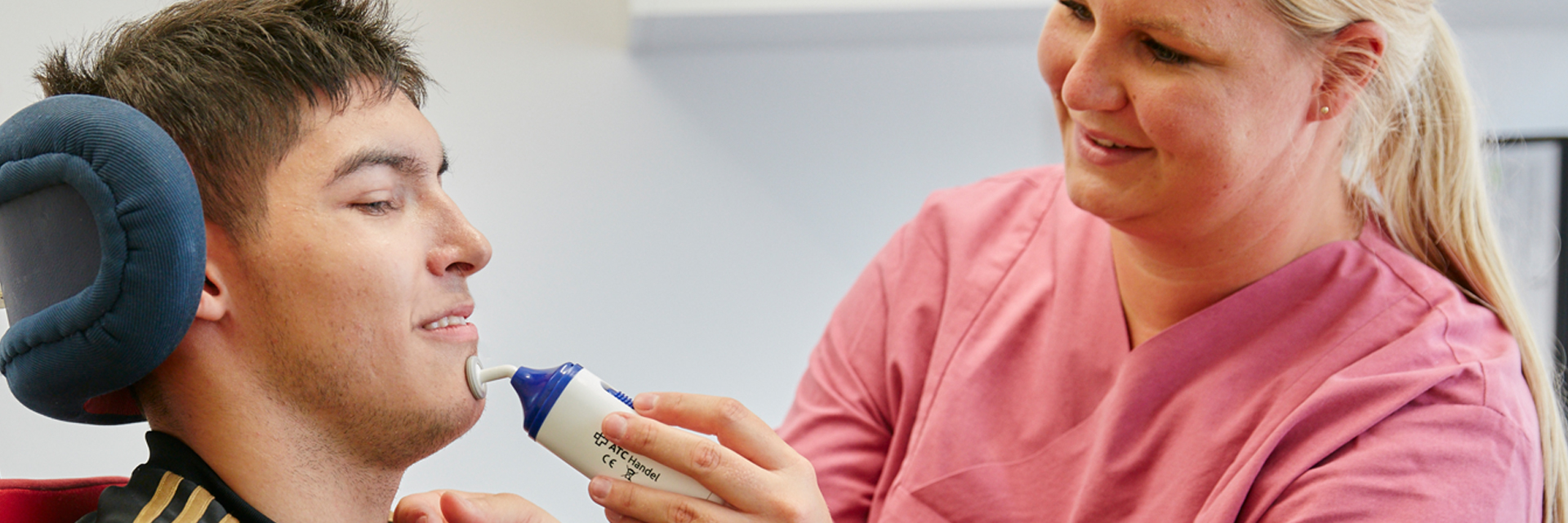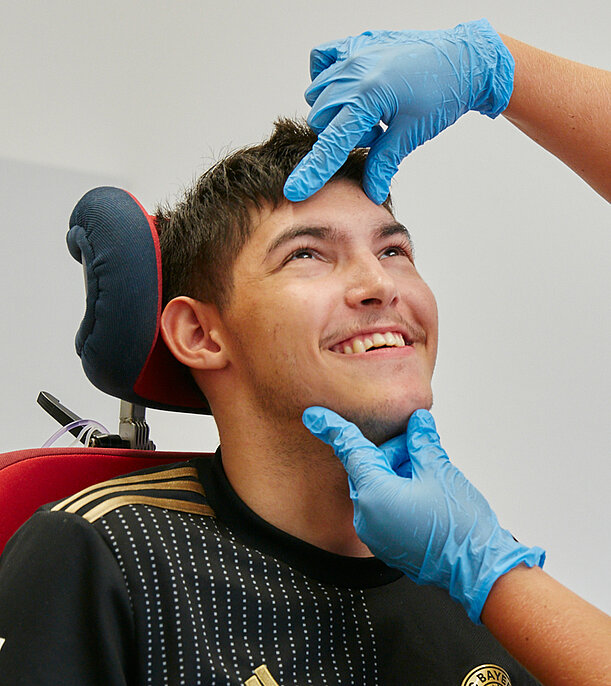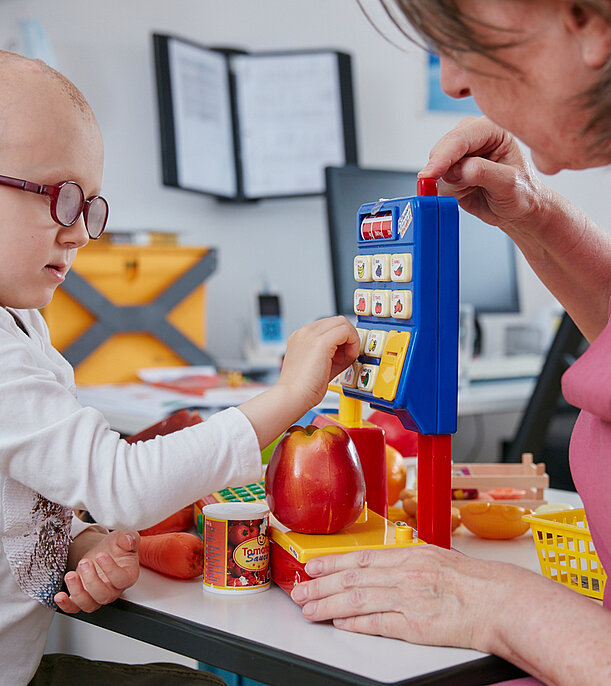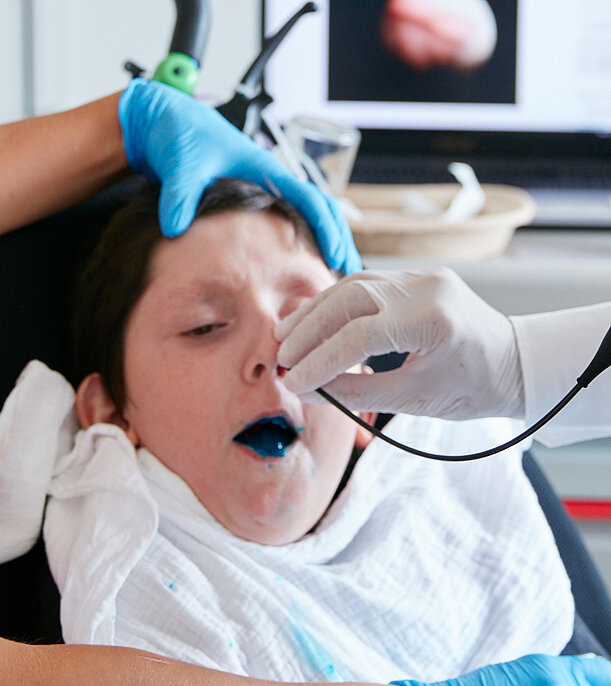
Speech therapy
Speech therapy helps improve swallowing, speaking and communication
The field of speech therapy includes the diagnosis, counselling and therapy of disorders of communication, speech, language and voice. In addition, we often treat swallowing disorders and difficulties with food intake.
If necessary, we care for patients with artificial respiration in cooperation with the respiratory therapy department and, if necessary, accompany them during weaning from artificial respiration. It is important for us to involve the patients and their caregivers in the diagnosis and treatment from the very beginning and to provide them with comprehensive advice during their stay and on discharge.

Identifying difficulties in order to provide targeted support in eating and speaking
A comprehensive anamnesis and a discussion with the relatives about the relevant difficulties in the area of food intake and communication are our first steps to identify the problem areas. In order to then assess the child's developmental stage and abilities, structured observation and standardised testing and diagnostic procedures are carried out.
Depending on the age of the patient, we assess the language acquisition disorder (for example, in the case of so-called "late talkers", difficulties with phonation, disorders of grammar, vocabulary, etc.) or the speech and language disorders after language acquisition has been completed (aphasia, dysarthria). Our diagnostics include the individual assessment of pre-linguistic abilities such as eye contact, dealing with things, people and the environment or the examination of linguistic and communicative abilities in cases of intelligence impairment and other developmental disorders.
Special speech diagnostics are carried out in the case of absent spoken language. We also take a closer look at food intake (infants to adulthood) in the case of corresponding problems. Here we differentiate between swallowing disorders, feeding disorders and food refusal and assess the sucking, swallowing and chewing functions with different food consistencies (solid food, porridge, thick liquid, thin liquid). In terms of apparatus-based diagnostics, we offer fibre endoscopic examination of swallowing (FEES), measurement of otoacoustic emissions and tympanometry.

Addressing specific difficulties in a targeted manner
After the findings have been made, an individual treatment plan is drawn up.
For this purpose, the goals of the treatment are discussed with the relatives and, if possible, also with the patients. The therapy itself is tailored to the individual needs and takes place regularly after interdisciplinary consultation and in cooperation with the other departments of the paediatric clinic. Before discharge, we give a recommendation for further treatment or appropriate follow-up treatment is initiated.

The range of therapeutic procedures used at Children`s Hospital Schömberg includes swallowing therapy for infants, functional dysphagia therapy and manual swallowing therapy.
In addition, we also offer treatments according to F.O.T.T.. These procedures are supported by K-Taping in speech therapy and the use of biofeedback (swallowing, speech, voice), for example with device-based procedures such as sEMG.

In this field of speech therapy a variety of approaches is available to us.
In addition to speech therapy according to Zollinger or the patholinguistic approach, symbol-supported communication and action-oriented speech therapy are used. In cooperation with occupational therapy and education, we work with the Picture Exchange Communication System (PECS) to enable our patients to communicate.
If necessary, specific therapies are provided for dysarthria, apraxia of speech or other problems with speech, as well as speech therapy for aphasia.

In close cooperation with the nursing and respiratory therapy departments, speech therapy is also involved in tracheal tube management for ventilated patients.
Tracheal tube management is accompanied by endoscopic monitoring by the doctor. If necessary, we also use swallowing, speech, language or voice therapy for the ventilated patients.
Further information:
Respiratory therapy / tracheal cannula management


